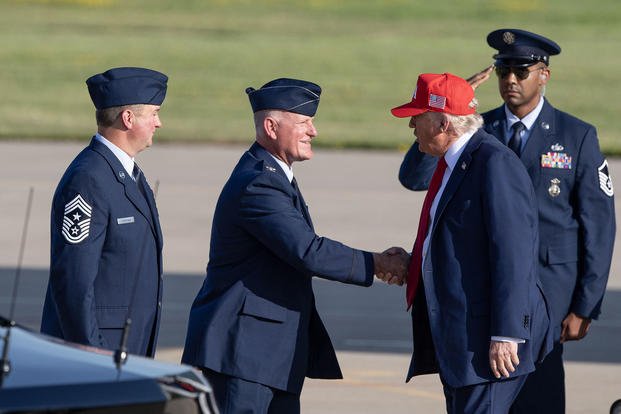President Donald Trump has introduced an unprecedented practice of personally vetting four-star general nominees, a significant departure from established protocols that is sparking considerable ethical debate. This direct involvement raises critical questions about the traditional separation of political influence from the military’s highest echelons, amidst concerns of a potential loyalty test within the armed forces.
A spokesperson for the White House affirmed these meetings, asserting that President Trump’s goal is to ensure the military comprises “warfighters first — not bureaucrats,” thereby guaranteeing the nation’s most formidable fighting force. However, this rationale has been met with skepticism from some defense analysts, while simultaneously being lauded by presidential allies as a necessary reform in military appointments.
This expanded presidential role in the vetting process for top military leadership aligns with a discernible pattern during the administration: an increasing integration of military resources into the president’s domestic agenda. Examples include the deployment of troops for border initiatives and participation in immigration raids, signalling a broader shift in the military’s traditional roles.
Concerns surrounding President Trump’s engagement with the military are further amplified by previous controversial interactions, such as an appearance at Fort Bragg where troops were reportedly encouraged to express disapproval of elected officials. Such instances contribute to an impression of politicization within an institution historically regarded as non-partisan.
Lindsay Cohn, an expert in civilian-military relations at the U.S. Naval War College, highlights the prevailing worry that this new vetting approach could suggest selections are based on personal loyalty rather than merit. She emphasizes that such a perception is detrimental to the integrity of a democratic military, undermining public and internal trust in fair command appointments.
While the U.S. Constitution, specifically Article II, Section 2, grants the president authority in nominating high-ranking officers with Senate consent, experts note that President Trump’s specific rhetoric and aggressive utilization of the military for overtly political purposes are unparalleled. This unique approach prompts scrutiny regarding the boundaries of presidential power and military neutrality.
Traditionally, the Secretary of Defense serves as a crucial intermediary, buffering the uniformed military from the direct political pressures of the White House. The current direct engagement by President Trump, seemingly bypassing this established buffer, indicates a potential shift in this vital civilian-military dynamic, raising questions about the role of the Defense Secretary.
Critics contend that the combination of the president’s public commentary and actions regarding the armed forces cultivates a concerning pattern: the perception of the military as a personal instrument of presidential will. This suggests that military actions might be perceived as driven by personal allegiance rather than solely by lawful orders and national interest, impacting the ethos of a non-partisan defense force.






Leave a Reply